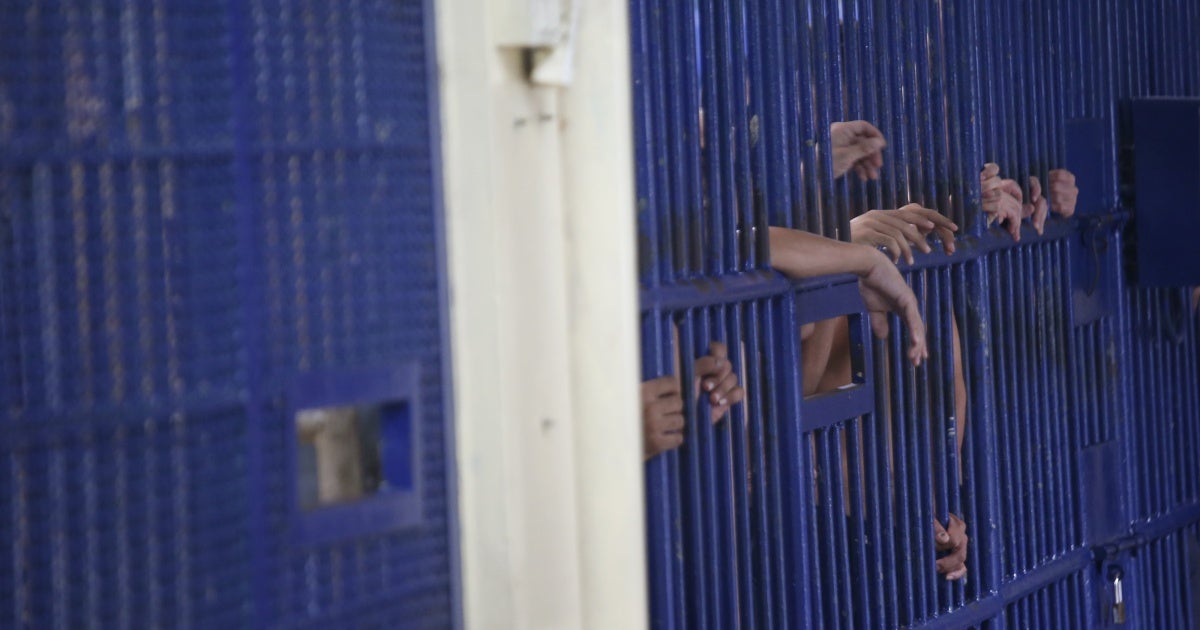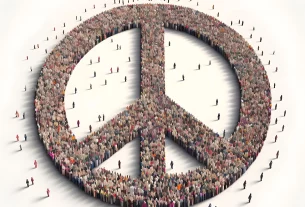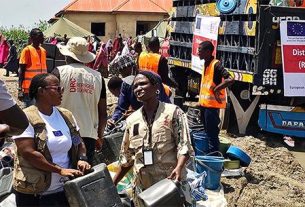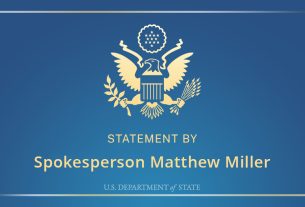(Bangkok, November 29, 2024) – Thai authorities forcibly returned six Cambodian political opposition activists and a young child on November 25, 2024, putting them at risk of unfair trials and mistreatment in Cambodia, Human Rights Watch said today. Cambodian authorities should immediately drop the politically motivated charges against these refugees and an asylum seeker and unconditionally release them.
On November 24, Thai immigration officials in Pathum Thani province arrested the seven people, including the 5-year-old grandson of one activist. The authorities alleged they were staying in Thailand illegally and forcibly returned them to Cambodia the next day. Cambodian authorities have detained Pen Chan Sangkream, Hong An, Mean Chanthon, Yin Chanthou, Soeung Khunthea, and Vorn Chanratchana in three separate prisons under arrest warrants issued by the Phnom Penh Municipal Court. The 5-year-old boy was released to family members upon returning to Cambodia.
“Thai officials have used immigration charges as a convenient excuse to deport these Cambodian refugees without court review and in blatant disregard for fundamental refugee protection principles,” said Elaine Pearson, Asia director at Human Rights Watch. “Thai authorities should not be complicit in the Cambodian government’s transnational persecution of political opposition figures.”
Cambodian authorities have charged five of the six detainees with “plotting” under article 453 of the criminal code, which is punishable by up to ten years in prison. The authorities previously brought plotting charges in a criminal case file opened on August 15 regarding the Cambodian government’s crackdown on protests against the trade and cooperation agreement between Cambodia, Laos, and Vietnam.
The six detainees are supporters of the dissolved opposition Cambodian National Rescue Party (CNRP) and its subsequent incarnations. They traveled to Thailand in 2022, where five were recognized as refugees by the United Nations High Commissioner for Refugees (UNHCR). The sixth was awaiting a refugee status determination from UNHCR.
In Cambodia, Human Rights Watch has documented systematic harassment and targeting of critics in the political opposition and civil society, including through threats and instigation of violence, arbitrary arrests and detention, unfair trials and baseless prison sentences. Conditions in Cambodian prisons are inhumane, with the United Nations special rapporteur on the situation of human rights in Cambodia citing in his 2023 report an “overcrowding rate of about 300 percent, with some 40,000 inmates.”
Since the dissolution of the CNRP in 2017, the Cambodian government has pursued former CNRP members – including those living in exile in neighboring Thailand – on politically motivated charges.
In February, Thai police arrested three opposition activists in Bangkok ahead of Prime Minister Hun Manet’s visit to Thailand. Hun Manet expressed his gratitude to then-Thai Prime Minister Srettha Thavisin for his commitment not to allow people to conduct “harmful activities” against neighboring countries. That same month, Thai authorities detained three former Candlelight party members who had fled to Thailand for fear of political persecution.
Human Rights Watch’s recent report, “‘We Thought We Were Safe’: Repression and Refoulement of Refugees in Thailand,” documents a pattern of transnational repression in which Thai authorities helped neighboring governments take unlawful actions against dissidents and activists seeking protection in Thailand. In exchange, Thai authorities were able to target critics of the Thai government living in Laos, Vietnam, and Cambodia as part of a “swap mart” of refugees and dissidents.
Refugees in Thailand face ongoing risks of forcible return in violation of their rights and international law, Human Rights Watch said.
Under customary international law and the United Nations Convention against Torture, to which Thailand is a party, Thailand is obligated to respect the international law principle of nonrefoulement, which prohibits countries from returning anyone to a place where they would face a real risk of persecution, torture or other serious ill-treatment, or a threat to life.
In addition, Thailand’s Act on Prevention and Suppression of Torture and Enforced Disappearances, which came into effect in February 2023, states that “no government organizations or public officials shall expel, deport, or extradite a person to another State where there are substantial grounds for believing that the person would be in danger of torture, cruel, inhuman, or degrading treatment, or enforced disappearance.”
By deporting these refugee and asylum seekers, Thailand’s government violated its international legal obligations, Human Rights Watch said.
“Thai and Cambodian authorities continue to collude to repress critics in exile,” Pearson said. “Thailand and Cambodia’s new prime ministers should show they are different from their predecessors and ensure their governments uphold their international human rights obligations.”



